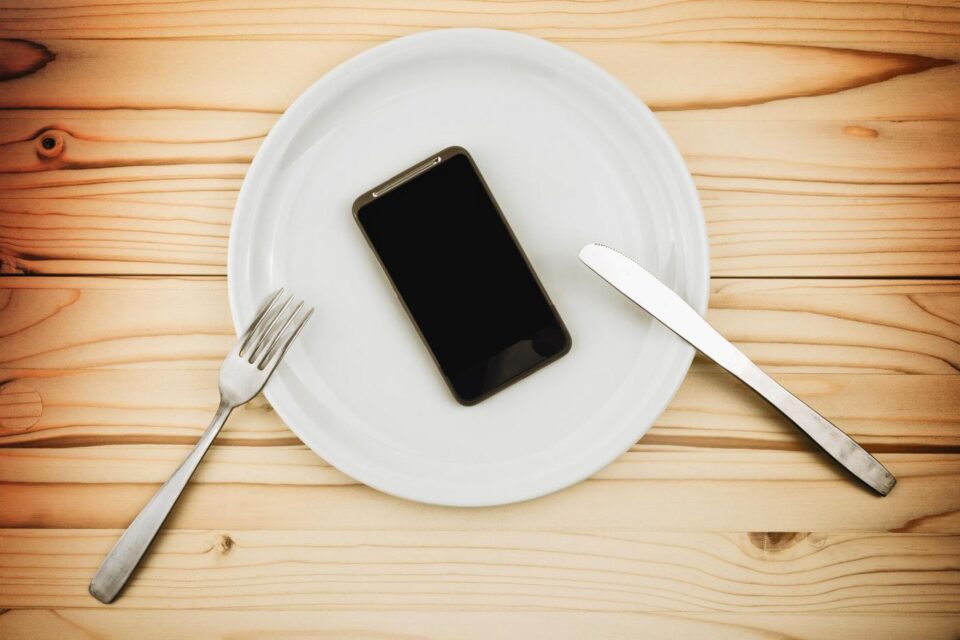
Dear Eric: My wife and I are both 70. We recently gave up our landline and now both carry our cellphones. Lately my wife, when receiving a text or call, will stop what she’s doing to reply. While eating lunch together recently and having a conversation, a text came in and she interrupted our talk to respond.
I voiced my feelings about being made to feel second class and asked if she couldn’t have waited to address this, unless it was timely or very important. She acknowledged it wasn’t a time-sensitive issue but said she wasn’t being disrespectful. I told her that I disagreed with that and asked her to please prioritize in similar situations.
Tonight, we were watching a TV show together and with three minutes left, the conclusion unfolding, her brother called. The show was paused and she then proceeded to have a five-minute conversation about dinner plans for an evening 10 days from now.
I left the room, turned on another TV and watched the end by myself. When she asked what my problem was, I again explained there was no reason she couldn’t have called him back after we were done watching the show together. She disagreed and said it was just a few minutes. I found this extremely rude and asked her again to prioritize these situations. She tells me I am overreacting. Having not grown up with these technological situations, I’d appreciate your thoughts.
– No Call List
Dear No Call: The technology is a factor here, but a bigger part may be a desire to have more meaningful time with your wife.
Having a cellphone on you can sometimes seem like being perpetually on hold. The minute it rings or buzzes, you feel an impulse to respond in a way that landlines, stationed on a wall or counter rather than in our pockets, rarely trigger. It’s an easy habit to fall into and a hard one to break.
So, some of this is novelty and the siren song of technology.
But, even if the phone wasn’t ringing, I think you’d still be yearning to feel valued by and connected to your wife. After all, these are only minutes-long digressions.
It’s OK to ask for more intentional connection and have it not become an indictment of her phone. It’s also OK to ask for a “no phones” hour while you watch a show or share a meal. Leave them in another room or plugged into a charger.
You’ll get more quality time, and feel less annoyed about interruptions, if you approach this proactively and map out times that you can feel appreciated and show your appreciation for your wife.
Dear Eric: I have a friend who has struggled with mental health issues following a breakdown a few years ago. She has a diagnosis and is on medication. She is not supposed to drink alcohol while on the medication, but continues to do so, despite hearing the concerns from her friends and family.
She is not a raging alcoholic but does have a couple of cocktails most days. She is also very depressed and clearly not on a good path.
I know that no one can make the decision to get better but her. It’s hard to watch her suffer, and it’s also frustrating to know that she could do something about it but won’t.
She is my friend, and I care about her, but I don’t feel that I can stand by and watch this unfold any longer. Do I remove myself from the friendship? Do I make it clear to her how I feel, despite knowing she will react negatively? Do I do nothing?
– Frustrated Friend
Dear Friend: Stay in her life but set good boundaries. You can be clear with her that some of her behavior is concerning and destructive and it hurts to be around her. If she reacts negatively, hold your ground and tell her you’ll be there for her when she cools off. It’s up to her to accept the outstretched hand (and to see that it’s not a wagging finger, scolding her).
You’re correct that she’s the only one who can decide to make a change. But you can investigate resources for providing her support and pointing her toward recovery by visiting the Substance Abuse and Mental Health Services Association (samhsa.gov).
Being a good friend doesn’t mean accepting everything your friend does. Sometimes the best thing a friend can do is call us out on dangerous behavior or express concern about unhealthy patterns. Ask yourself what you need to feel safe in this friendship and relate to her from that place. That will keep you from getting too drawn in but will still provide her with someone to call when she’s ready to seek help.
(Send questions to R. Eric Thomas at eric@askingeric.com or P.O. Box 22474, Philadelphia, PA 19110. Follow him on Instagram and sign up for his weekly newsletter at rericthomas.com.)
©2025 Tribune Content Agency, LLC.
